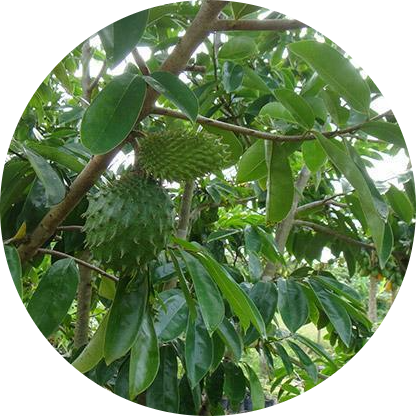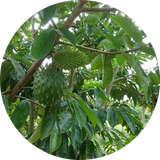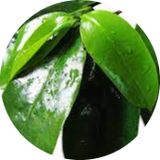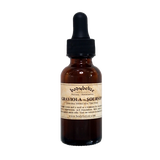- PLANT MEDICINE
- >
- Tinctures
- >
- GRAVIOLA (SOURSOP) TINCTURE
GRAVIOLA (SOURSOP) TINCTURE
Family: Annonaceae
Genus: Annona
Species: muricata
Synonyms: Soursop, Guanábana, Brazilian Paw Paw
Common Names: Graviola, soursop, guanábana, Brazilian paw paw
Parts Used: Leaves, fruit, seeds, bark
Main Actions: Antioxidant, anticancer, antimicrobial, antiparasitic
Other Actions: Antidiabetic, anti-inflammatory, antihypertensive
Description: Graviola is a tropical evergreen tree native to Central and South America, the Caribbean, and some parts of Africa. It bears large, heart-shaped fruits with spiky green skin and has glossy, dark green leaves.
Tribal and Herbal Medicine Uses: Used traditionally to treat infections, inflammation, hypertension, and various parasitic conditions. In some cultures, graviola is also used as a sedative and to induce vomiting. This extract has also been used in Central and South America to treat a variety of ailments, such as hypertension, ringworm, influenza, scurvy, rashes, malaria, neuralgia, dysentery, arthritis, palpitations, rheumatism, nervousness, high blood pressure, insomnia, diarrhea, fever, nausea, boils, dyspepsia, muscle spasm, and herpes.
Plant Chemicals: Acetogenins, alkaloids, phenols, flavonoids, tannins, saponins
Biological Activities and Clinical Research: Studies suggest potential anticancer properties due to acetogenins. Antimicrobial and antiparasitic activities have also been reported. Limited clinical trials support its use against cancer, though more research is needed.
Current Practical Uses: Dietary supplement, herbal medicine for various ailments, including cancer and infections.
Main Preparation Method: Decoction, infusion, capsules, tinctures, extracts
Main Actions (in order): Antioxidant, anticancer, antimicrobial, antiparasitic, antidiabetic, anti-inflammatory, antihypertensive
Main Uses: Cancer treatment and prevention, infections, inflammation, hypertension
Properties/Actions Documented by Research: Anticancer, antimicrobial, antiparasitic, antioxidant
Other Properties/Actions Documented by Traditional Use: Antidiabetic, anti-inflammatory, antihypertensive
Cautions: Potential neurotoxic effects due to acetogenins. Limited safety data available. Not recommended for pregnant women.
Traditional Preparation: Leaves and fruit are commonly brewed into teas or decoctions.
Contraindications: Avoid use during pregnancy and breastfeeding. Not recommended for individuals with low blood pressure.
Drug Interactions: Limited information available, but caution advised when combining with medications due to potential interactions, especially for those with existing health conditions.
Recommended dosage: 2.5ml - 5ml taken in a small glass of water or juice 2 x daily on an empty stomach for better absorption.




